2014 Women's Institute for Summer Enrichment
PROGRAM OVERVIEW
WISE is a one-week residential summer program at a TRUST campus that brings together graduate students, post-doctoral fellows, and professors from all disciplines that are interested in Ubiquitous Secure Technology and the social, political, and economical ramifications that are associated with this technology. Thought leaders from academia, industry, and government come to WISE to teach power courses in several disciplines, including computer science, engineering, economics, law, and public policy. The one-week program includes rigorous classes and allows participants opportunities for career development and to network with their peers.
The 2014 WISE Institute was held June 15-19, 2014 on the Cornell Campus. A copy of the agenda can be found here.
SPEAKERS 2014
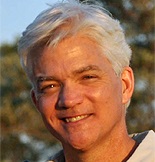
Stephen B. Wicker
Campus Host, Cornell University
Stephen B. Wicker is a Professor of Electrical and Computer Engineering at Cornell University, and a member of the graduate fields of Computer Science, Information Science, and Applied Mathematics. He teaches and conducts research in wireless information networks, cellular networks, packet-switched computer networks, and digital telephony. He currently focuses on the interface between information networking technology, law, and sociology, with a particular emphasis on how design choices and regulation can infringe the privacy and speech rights of users.
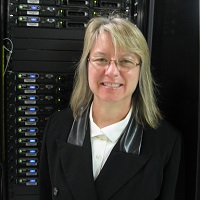
Amy W. Apon
Clemson University
What is Big Data and What Can We Do With It?
Amy W. Apon is Chair and Professor of the Computer Science Division of the Clemson University School of Computing. As Division Chair, she seeks to promote areas of collaborative computing, and to help create career paths for the young people of South Carolina and of our regional partners. Professor Apon's research interests include performance modeling and analysis of parallel and distributed system, data-intensive computing, emerging parallel architectures, scheduling policies in parallel systems, parallel file systems, networks for high performance computing, impact of high performance computing to research competiveness, sustainable funding models for research computing, and data center design.
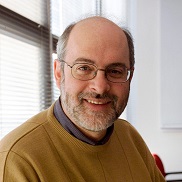
Kenneth P. Birman
Cornell University
Distributed Computing Puzzles
Kenneth P. Birman is a Professor of Computer Science at Cornell University. His research is concerned with what people have started to call "Cloud Computing" and "Edge Computing". Of course, Cloud Computing is just the buzzword of the day. Back before these terms gained wide use, we would have said that I work on reliable distributed computing, applications involving reliable information collection or dissemination, and problems associated with security in complex distributed systems. Another recent focus has been on massive scalability -- building really big computing systems that remain stable even under stress, overload, or when components fail or are restarted.
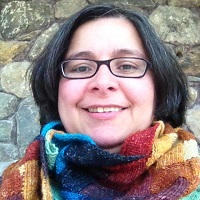
Dilma Da Silva
Qualcomm Research
Challenges in Mobile Cloud Computing
Dilma da Silva is Principal Engineer & Manager and System Software Researcher for Qualcomm Research in Silicon Valley. Her primary research interests are operating systems, distributed computing, and high-end computing. A lot of her current work is in cloud computing. She is an ACM Distinguished Scientist, member of the boards of CRA-W and a Committee Member at CDC. Dr. da Silva is a co-founder of the Latinas in Computing group and treasurer at ACM SIGOPS. She received her PhD in Computer Science from Georgia Institute of Technology.

Raquell Holmes
improvscience
Deep Dive for Women in Cyber Security
Raquell Holmes is the founder of improvscience. Trained formally as a cell biologist, Holmes brings her training from the East Side Institute in using improvisational theater and performance to build collaborative learning environments to business, schools and researchers throughout the country. Her interdisciplinary research and educational efforts in the computational sciences make use of modeling, simulation and visualization tools. Through improvscience, Dr. Holmes brings the cultural and performatory approaches of social therapy to developing creative scientific learning communities, organizations and research groups.
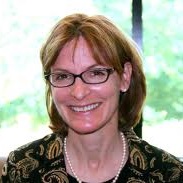
Beth A. Plale
Indiana University
Beth Plale is Director of the Data To Insight Center of Pervasive Technologies Institute, and Professor of Computer Science in the School of Informatics and Computing Indiana University Bloomington. Professor Plale has a strong research interest in metadata and provenance of digital scientific data particularly for purposes of long term preservation and focuses on "the first mile" where collection is automatic and close to the generation source. Plale is deeply engaged in environmental and atmospheric science research and has substantive experience in developing stable and useable scientific cyberinfrastructure.
Clifford Pollock
Cornell University
Welcome & Opening
Clifford Pollock is the Chair and Ilda and Charles Lee Professor of Electrical and Computer Engineering at Cornell University. His research focus has been in tunable lasers, generation of ultrashort optical pulses, and the design of optical waveguide devices. He developed a number of broadly tunable near infrared lasers based on color centers and on Chromiumdoped materials, explored new materials such as composite optical lasers, and developed methods for using the large bandwidth of these lasers to make femtosecond pulses. Current research is directed at femtosecond-duration pulses of tunable radiation, ultra-high resolution positioning using optical rulers, and flexible optical waveguides for use in sensors and displays.

Fred B. Schneider
Cornell University
Cybersecurity Doctrine: Towards Public Cybersecurity
Fred B. Schneider is Samuel B. Eckert Professor of Computer Science at Cornell University. He joined Cornell's faculty in Fall 1978, having completed a Ph.D. at Stony Brook University and a B.S. in Engineering at Cornell in 1975. Schneider currently also serves as the Chief Scientist for the NSF-funded TRUST Science and Technology Center, which brings together researchers at U.C. Berkeley, Carnegie-Mellon University, Cornell University, Stanford University, and Vanderbilt University. Schneider's research has focused on various aspects of trustworthy systems --- systems that will perform as expected, despite failures and attacks. His early work concerned formal methods to aid in the design and implementation of concurrent and distributed systems that satisfy their specifications.
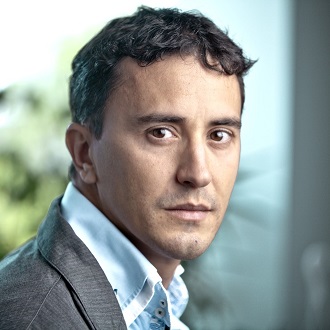
Emin Gün Sirer
Cornell University
The Flies in the Bitcoin Ointment: Technical Challenges Ahead for Cryptocurrencies
Emin Gün Sirer is an Associate Professor at the Department of Computer Science at Cornell University. His research interests span Big Data infrastructure, distributed systems, networking and operating systems.
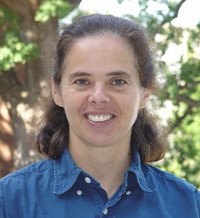
Eva Tardos
Cornell University
Eva Tardos is the Jacob Gould Schurman of Computer Science at Cornell University. Her research interest is algorithms and algorithmic game theory. Her work focuses on the design and analysis of efficient methods for combinatorial-optimization problems on graphs or networks. She is most known for her work on network-flow algorithms, approximation algorithms for network flows, cut, and clustering problems. Her recent work focuses on algorithmic game theory, an emerging new area of designing systems and algorithms for selfish users. Eva Tardos received her Ph.D. from Eötvös University, Budapest, Hungary. She has served as Chair of the Department of Computer Science at Cornell University and has been elected to the National Academy of Engineering and the American Academy of Arts and Sciences.

Bhavani Thuraisingham
University of Texas at Dallas
Bhavani Thuraisingham is the Louis A. Beecherl, Jr. I Distinguished Professor at The University of Texas at Dallas. She has unique experience working in the commercial industry, federal research laboratory, US government and academia, and her 30+ year career includes research and development, technology transfer, product development, program management, and consulting to the federal government. Her research focuses on data security and privacy, secure systems, secure networks, secure languages, secure social media, data mining and semantic web.
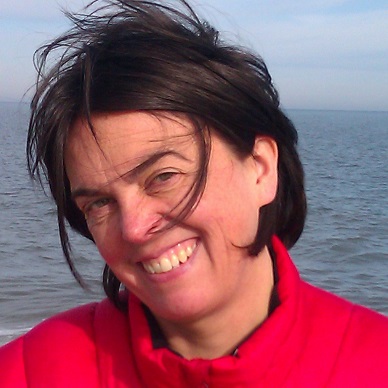
Kristene Unsworth
Drexel University
Ethical and Policy Issues in Big Data Research
Kristene Unsworth is an Assistant Professor in the College of Computing and Informatics at Drexel University in Philadelphia, PA. She is currently co-PI on an NSF - EESE grant: The Ethics of Algorithms. This project investigates ethical conceptions and the values held by individuals working with algorithms to understand Big Data. In addition to this she has been researching the way law enforcement is using social media tools to conduct investigations, but also to reach out and engage with the public, particularly in at-risk communities. This work is driven by questions related to community participation, policing, and surveillance. She obtained her PhD at the University of Washington. Her work is positioned at the intersection of ethics, normative philosophy and information science.

Daisy Zhe Wang
University of Florida
Knowledge Base Construction and Curation from Big Text, Image and Crowd Data
Daisy Zhe Wang is an Assistant Professor in the CISE department at the University of Florida. She is leading the Data Science Research Lab at UF. She obtained her Ph.D. degree from the EECS Department at the University of California, Berkeley in 2011 and her Bachelor’s degree from the ECE Department at the University of Toronto in 2005. At Berkeley, she was a member of the Database Group and the AMP/RAD Lab. She is particularly interested in bridging scalable data management and processing systems with probabilistic models and statistical methods. She currently pursues research topics such as probabilistic databases, probabilistic knowledge bases, large-scale inference engines, query-driven interactive machine learning, and crowd assisted machine learning. Her research is currently funded by DARPA, Google, Pivotal, Greenplum/EMC, Survey Monkey and Law School at the University of Florida.



